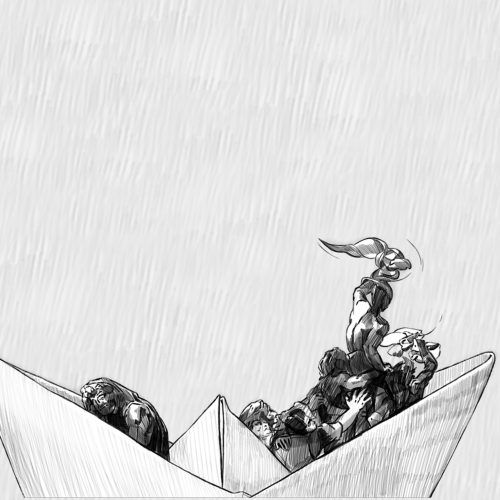World Refugee Day 2020
There were 79.5 million forcibly displaced people worldwide at the end of 2019, as a result of persecution, violence or human rights violations, according to the annual report of the UN refugee agency (UNHCR), which was published on the occasion of the World Refugee Day on June 20. The number is almost double than ten years ago. Forty per cent are children.
In 2019, there were 11 million newly displaced people. Among them, 8.6 million inside their own countries. The annual increase is especially the result of the ongoing wars in Yemen and Syria, the escalating of violence in the Sahel region and the internal displacements in the East of the Democratic Republic of the Congo, where the Allied Democratic Forces (ADF), an Islamist rebel group originally from neighbouring Uganda, is operating. The numbers of 2019 have also increased due to the UN including the displacement of Venezuelan for the first time in its report.
More than two-thirds of all refugees come from just five countries – Syria (6.6 million people), Venezuela (3.7 million), Afghanistan (2,7 million), South Sudan (2.2 million) and Myanmar (1.1. million).
As for the hosting countries, developing countries are hosting 85 per cent of the world’s refugees and 73 per cent of the 79.5 million displaced people have sought shelter in a country neighbouring their own. Turkey hosts the most significant number of refugees worldwide, with 3.6 million people, followed by Colombia, Pakistan and Uganda. The fifth hosting country in the list is a European country – Germany, which hosts 1,1 million refugees.























